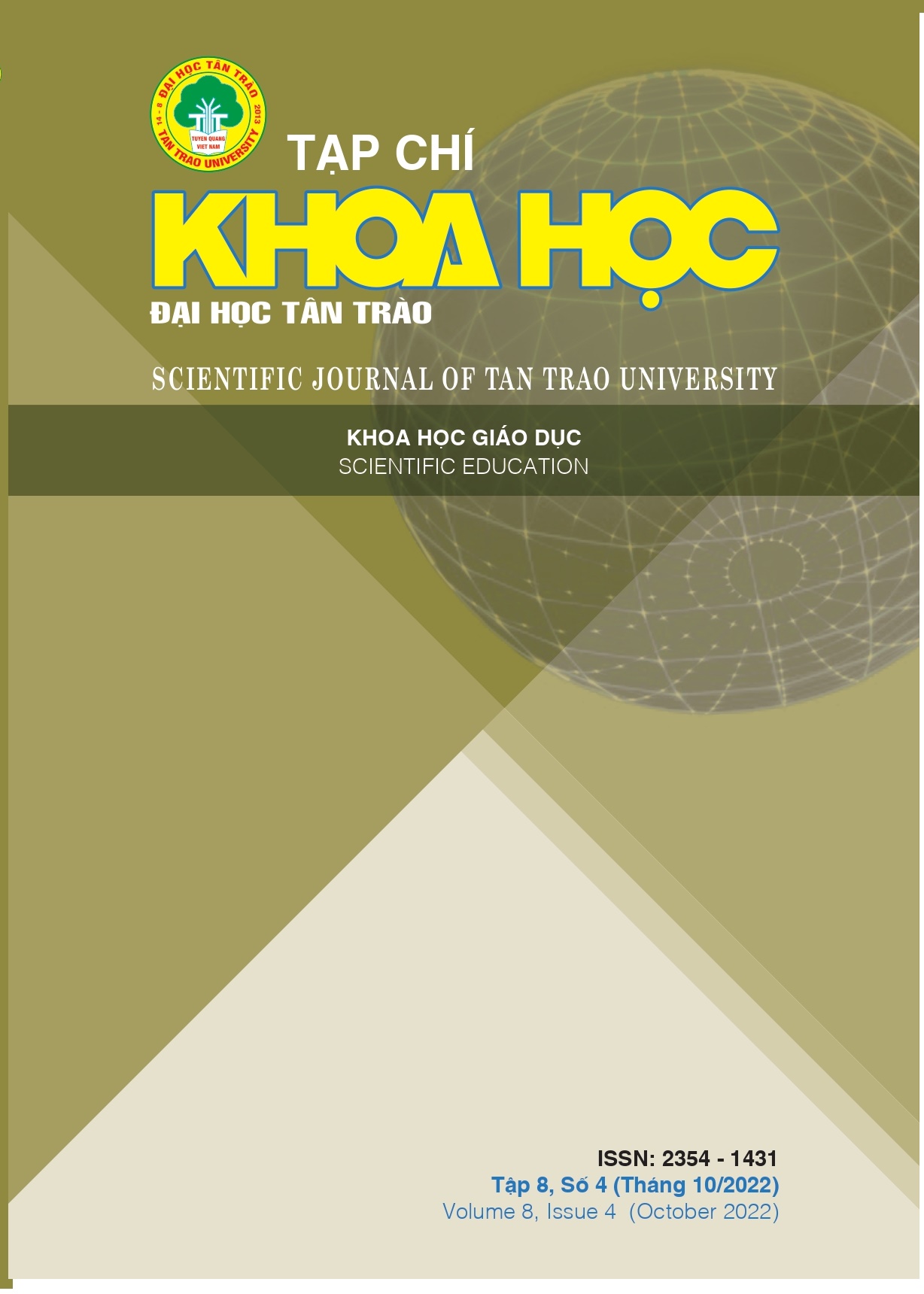PHILIPPINE LEARNING CONTINUITY PLAN: A POLICY ANALYSIS IN TIMES OF PANDEMICPHILIPPINE LEARNING CONTINUITY PLAN: A POLICY ANALYSIS IN TIMES OF PANDEMIC
DOI:
https://doi.org/10.51453/2354-1431/2022/824Keywords:
policy analysis, Basic Education - Learning Continuity Plan, UNESCO analytical framework, PhilippinesAbstract
This paper investigates the adoption of the DepEd Order No. 12, s. 2020 Basic Education-Learning Continuity Plan (BE-LCP) for Grade three students in a School District of a Schools City Division situated in the Southern part of the Philippines, utilizing the UNESCO analytical framework in policy analysis in education. A qualitative research design using case study method was employed to elucidate the experiences and challenges of teachers and administrators in this time of pandemic, particularly for School Years 2020-2021 and 2021-2022. Results showed an increasing enrollment rate, 100% promotion rate, and no manifestations of students at-risk of dropping out. Although the Proficiency Level is increasing, some students still have low reading performance. Regarding education sector management, the school district created curriculum adjustments, re-aligned learning materials, deployed various learning delivery modalities, and provided training to teachers and school leaders. Similarly, all schools utilized the provision of financial resources efficiently since the budget utilization rate is 100%. Also, the monitoring and evaluation mechanism was operationalized in the said district. It is recommended that the Department of Education must optimize access and equity in this new normal education and establish more educational infrastructures for there is a need for more learning spaces; likewise, to ensure the delivery of quality education, interventions must be conducted to address the learning gaps such as intensifying the reading program; correspondingly, the district should conduct BE-LCP review and adjustments for continuous improvement; lastly, similar studies may be conducted focusing on plans for post-pandemic scenarios.
Downloads
References
[1] Rashid, S., & Yadav, S. S. (2020). Impact of Covid-19 pandemic on higher education and research. Indian Journal of Human Development, 14(2), 340-343.
[2] Jacob, O. N., Abigeal, I., & Lydia, A. E. (2020). Impact of COVID-19 on the higher institutions development in Nigeria. Electronic Research Journal of Social Sciences and Humanities, 2(2), 126-135.
[3] Bombardieri, R. (2021). Covid-19 changed education in America — permanently. https://www.politico.com/news/2021/04/15/covid-changed-education-permanently-479317
[4] Iwabuchi, K., Hodama, K., Onishi, Y., Miyazaki, S., Nakae, S. & Suzuki K.H. (2021). Covid-19 and Education on the Front Lines in Japan: What Caused Learning Disparities and How Did the Government and Schools Take Initiative? https://link.springer.com/chapter/10.1007/978-3-030-81500-4_5
[5] UNICEF (2021). Filipino children continue missing education opportunities in another year of school closure. https://www.unicef.org/philippines/press-releases/filipino-children-continue-missing-education-opportunities-another-year-school
[6] Department of Education (2020). Adoption of the Basic Education Learning Continuity Plan for School Year 2020-2021 in the Light of the COVID-19 Public Health Emergency (DepEd Order No. 12, s. 2020). Manila: Department of Education, Republic of the Philippines.
[7] United Nations Educational, Scientific and Cultural Organization (2003). UNESCO Handbook on Education Policy Analysis and Programming. Volume 1 Education Policy Analysis. UNESCO Bangkok Asia and Pacific Regional Bureau for Education, Thailand
[8] Miles, M. B., & Huberman, A. M. (1994). Qualitative Data Analysis: An Expanded Sourcebook. Thousand Oaks, CA: Sage Publications.
[9] Lichtman, M. (2006). Qualitative research in education: A user’s guide. London: Sage Publications.
[10] Bautista, J., (2021). Enrollment of 26.3 million students higher than in 2020 but below 2019 level. https://newsinfo.inquirer.net/1488496/26-3m-students-enroll-still-short-of-2019-level#ixzz7T3xuM2ka
[11] Eboatu, V. N. (2017). Comparative study of the impact of class repetition and mass promotion on students’ academic achievement in Anambra State. European Scientific Journal, 13(28), 394-406.
[12] Trinidad, J. E. (2021). Equity, engagement, and health: school organisational issues and priorities during COVID-19. Journal of Educational Administration and History, 53(1), 67-80.
[13] Department of Education (2015). Policy Guidelines on Classroom Assessment for the K to 12 Basic Education Program (DepEd Order No. 8, s. 2015). Manila: Department of Education, Republic of the Philippines.
[14] United Nations International Children's Emergency Fund (2022). Are Children Really Learning? Exploring Foundational Skills in the Midst of a Learning Crisis. https://data.unicef.org/resources/are-children-really-learning-foundational-skills-report/
[15] Dangle, Y.R. & Sumaoang, J. (2020, November). The Implementation of Modular Distance Learning in the Philippine Secondary Public Schools [Paper presentation]. 3rd International Conference on Advanced Research in Teaching and Education, Dublin, Republic of Ireland. https://www.dpublication.com/wp-content/uploads/2020/11/27-427.pdf
[16] De Vera, J. L. (2020). Challenges and Teacher Resilience: The New Normal Classroom Instruction Using Social Media in Philippine Context. Philippine Normal University. Social Media: Leisure, Health and Education, 83-96.
[17] Department of Education. (2020, December 30). Briones, DepEd officials give message of hope, thank partners in Year-Ender message [Press release]. https://www.deped.gov.ph/2020/12/31/briones-deped-officials-give-message-of-hope-thank-partners-in-year-ender-message/
[18] Somma, S. & Kilroy, G. (2020, July 14). During the Pandemic, Monitoring and Evaluation Matter More Than Ever. Asian Development Blog. https://blogs.adb.org/blog/during-pandemic-monitoring-and-evaluation-matter-more-than-ever
Downloads
Published
How to Cite
Issue
Section
License

This work is licensed under a Creative Commons Attribution-ShareAlike 4.0 International License.
All articles published in SJTTU are licensed under a Creative Commons Attribution-ShareAlike 4.0 International (CC BY-SA) license. This means anyone is free to copy, transform, or redistribute articles for any lawful purpose in any medium, provided they give appropriate attribution to the original author(s) and SJTTU, link to the license, indicate if changes were made, and redistribute any derivative work under the same license.
Copyright on articles is retained by the respective author(s), without restrictions. A non-exclusive license is granted to SJTTU to publish the article and identify itself as its original publisher, along with the commercial right to include the article in a hardcopy issue for sale to libraries and individuals.
Although the conditions of the CC BY-SA license don't apply to authors (as the copyright holder of your article, you have no restrictions on your rights), by submitting to SJTTU, authors recognize the rights of readers, and must grant any third party the right to use their article to the extent provided by the license.


